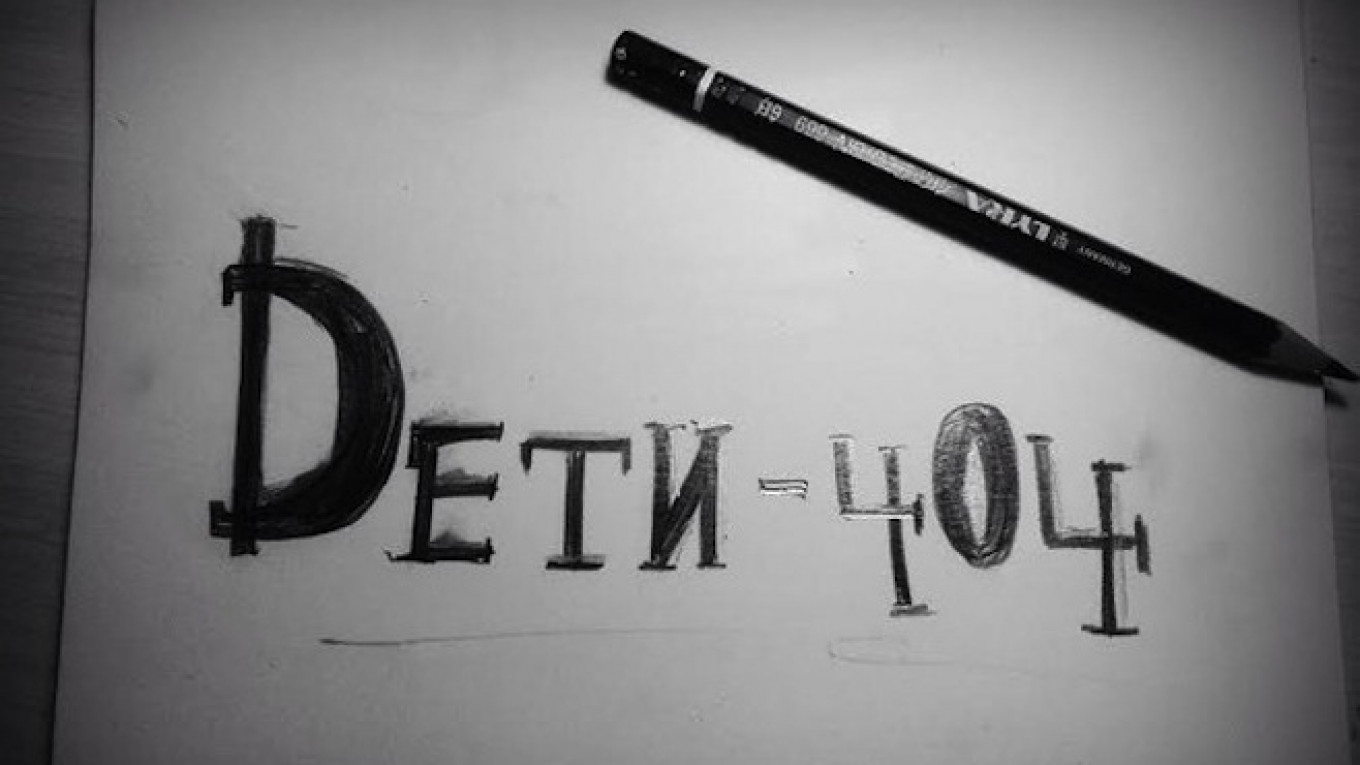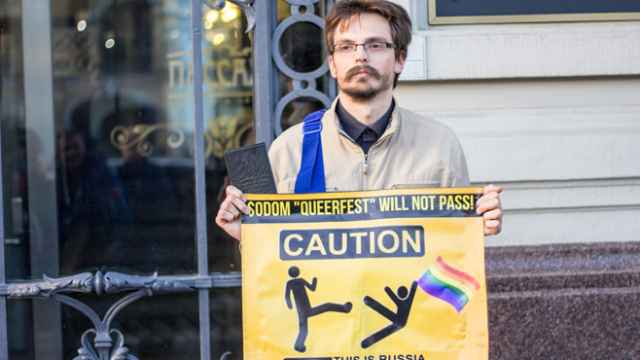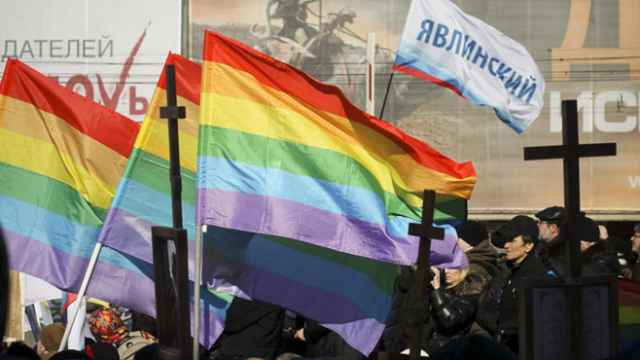Russia's media watchdog has said it will bring charges against a journalist who runs an online support group for LGBT teenagers under a law that bans the promotion of "gay propaganda" to minors.
In an online statement, the Roskomnadzor watchdog said it would file charges on Tuesday against Yelena Klimova, who founded the Deti-404 (Children-404) project to help support LGBT youths.
The agency said it had received more than 150 complaints from "citizens and organizations" about the Deti-404 pages that Klimova runs on Facebook and VKontakte. The number "404" refers to the "page not found" error code used in Internet searches.
"Our society assumes that LGBT children don't exist, as if gays, lesbians, bisexuals and transgender people are flying in from Mars already grown up," says a message on Deti-404's VKontakte page.
"Homophobic hatred turns the lives of teenagers into hell, maims their psyche, and sometimes simply kills," the page says. "LGBT teenagers are the most vulnerable victims of homophobia."
Not Qualified
Roskomnadzor said in its statement that in addition to the "formal, legal side" of the case that prompted the charges, Klimova had no business trying to help LGBT teenagers.
"It is our deep belief that the problems of teenagers' socialization, their growing up and personal self-identification should be handled by professionals — diploma-holding instructors, psychologists, doctors and lawyers," the statement said.
"We think that it is particularly the lack of specialized knowledge that prevents Yelena Klimova from staying within the boundaries of the law while running the project," the statement added.
According to Klimova, the problem instead lies with the "incongruousness and inherent non-feasibility" of the "gay propaganda" law, as well as the fact that the government runs no services staffed with doctors, psychologists or even lawyers to provide support for LGBT teenagers in a country where homophobia is rife.
"If those 'problems' should be handled by 'professionals' … and not amateurs like myself, then where are they?" she said on her LiveJournal page. "State, yoo-hoo! Roskomnadzor, yoo-hoo! Where should the crowds of 'troubled' teenagers be sent? To [children's rights ombudsman Pavel] Astakhov? To [anti-gay lawmaker Yelena] Mizulina? To a monastery?"
She added that more than a dozen professional psychologists volunteer for her project, suggesting the claim that her project operates without specialized knowledge is not fully justified.
A Disorder
Further complicating the chances of LGBT teenagers finding support in Russia is the fact that some doctors still believe that LGBT teenagers should be "treated" for their "disorder" — a holdover from the Soviet Union, which viewed homosexuality as a perversion and made its practice a criminal offense.
Deti-404's pages are filled with messages signed by teenagers, boys and girls, sharing their pain and despair of trying to be accepted as gays in a country that has little tolerance for LGBT people.
"When I was 13, I told my best female friend that I was different, and she couldn't keep a secret," a boy identified as 15-year-old Ruslan is quoted as saying in an e-mail to Deti-404. "And that spread. Literally two weeks later I was beaten for being different."
"All that I need now is support," his message said. "I fought for the right to be what I am. I am registered [with police] because of fighting. But I want to live. I am asking you for help and support. Nothing else. I'm asking. I'm terribly lonely."
Another message from a 14-year-old girl in Moldova who did not identify herself by name said her mother threatened to disown her and her classmates had beaten her repeatedly after they learned she was bisexual.
"My mom, when she found out, wanted to send me to a boarding school, saying: 'I don't need you, I gave birth to a normal person, not to you,'" she said. "I cried for a long time."
"I have several female friends who are the same as I am. They are the only ones who understand me," she said. "I want very much to die. I don't see any sense in living."
Roskomnadzor did not specify exactly what on the project's pages constituted "gay propaganda."
"Instead of pointing out where the banned materials are, they write that I simply don't have specialized knowledge to publish them," Klimova told the Slon.ru news site, adding that she was willing to begin working on a second college degree in psychology if a lack of training was the problem.
If Roskomnadzor does find evidence of "gay propaganda" on Deti-404's social network pages, possible penalties could include blocking access to the sites in Russia, or — in what Klimova described in a LiveJournal post as the worst-case scenario — blocking distribution of all material by the group.
Contact the author at [email protected]
A Message from The Moscow Times:
Dear readers,
We are facing unprecedented challenges. Russia's Prosecutor General's Office has designated The Moscow Times as an "undesirable" organization, criminalizing our work and putting our staff at risk of prosecution. This follows our earlier unjust labeling as a "foreign agent."
These actions are direct attempts to silence independent journalism in Russia. The authorities claim our work "discredits the decisions of the Russian leadership." We see things differently: we strive to provide accurate, unbiased reporting on Russia.
We, the journalists of The Moscow Times, refuse to be silenced. But to continue our work, we need your help.
Your support, no matter how small, makes a world of difference. If you can, please support us monthly starting from just $2. It's quick to set up, and every contribution makes a significant impact.
By supporting The Moscow Times, you're defending open, independent journalism in the face of repression. Thank you for standing with us.
Remind me later.






